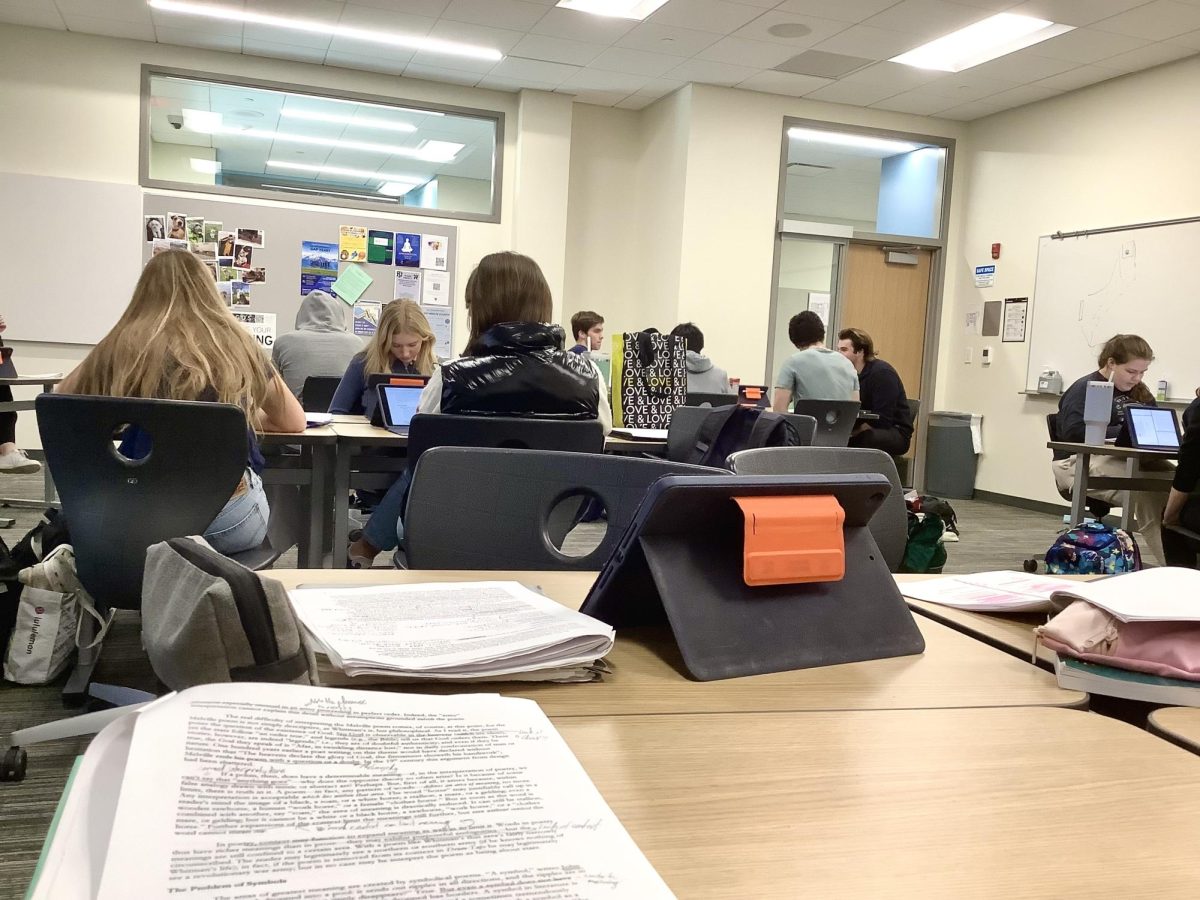As course registration comes to an end on Feb. 7, sophomores and juniors have the opportunity to take Advanced Placement courses next year, with many wondering whether the AP curriculum would work for them or which AP course to take.
AP classes are college-level courses that are taught in high schools, which prepare students to take AP exams each spring. Students who pass these exams can receive college credit and may be able to enter more advanced level classes at many colleges and universities, and may not have to take some required courses due to them already having taken them.
Due to AP classes being college-level courses, many students are told that AP courses are hard, with piles of homework and near impossible tests. Many students find themselves under pressure to take as many APs as they think they can bear in order to look better for colleges they hope to apply to. That was the case for junior Rebecca Pitluk, who is currently taking both AP Language and Composition and AP U.S. History.
“I’ll admit, one of my intentions for signing up for AP classes last year involved the hopeful idea of having a better looking transcript,” Pitluk said.
The pressure students face by peers to take AP courses can be overwhelming, but advisers and teachers encourage students to create a schedule that pushes them to grow and provides room for some freedom outside of school work.
“I find that one of the most important things students need to consider is whether the courses they sign up for allow them to do the things they want like joining a service club or doing a sport. It’s really about what kind of experience you want to have and what subjects you are passionate about that you want to dig deeper into,” junior adviser Tonya Piscitello said.
Sometimes students try to take excessively rigorous courses only to find themselves burned out within a few months.
“I find that sometimes students will think to themselves ‘What was I thinking?’ There can end up being tears, frustration, a bad grade, and sometimes dropping the class, which can lead to some trouble finding new classes in the future,” Piscitello said.
Some students are also considering whether it would be a good idea to level up from a 2 or 3 level class into an AP. Junior Penny Evatz was concerned that moving up from her level three history class into AP US History would be a huge leap.
“I remember talking to my history teacher about moving up a level, and I remember being worried about it being really hard. I had heard people say that it was a lot of reading and a lot of homework. In the end though, I figured I would try it out to see what it would be like and to challenge myself more,” Evatz said.
Today, while Evatz thinks her new history class is definitely harder, she found that it was manageable and the experience was still worth it.
Another factor that students are asked to consider is whether they are genuinely interested in the AP course they are taking because AP courses tend to require more work than taking non-AP courses.
AP Biology for example has a fast-paced curriculum that goes more in-depth into the course material than a 2, 3, or 4 level biology course.
“There is independent learning expected because the volume of material the College Board expects us to get through in a high school schedule is not doable,” AP Biology teacher Nicole Hoefling said.
Hoefling finds that students are far more likely to understand the material if they read the AP Biology textbook in detail instead of just skimming over it. It is also necessary for students to study and put effort into both their classwork and homework in order to perform well in the class.
While the more difficult topics are taught in class, students are required to thoroughly do work and learn more material outside of class, allowing them to make better study habits.
“Taking APs required me to stop procrastinating as much and start improving my working habits.. I had to challenge myself more than I had before, but at the same time, having to change my working habits allowed me to learn important skills and improve myself academically and even as a person,” Pitluk said.
While AP classes are definitely demanding, students find that they are a good way to push oneself to achieving their full potential. AP classes allow students to gain more knowledge in subjects that they enjoy and students have noticed that they become easier over time as long as they put in the work.
It is important that students should do what they think is best for themselves while making sure to maintain a healthy balance in their lives.
“I don’t regret taking these classes at all, and I am thankful for the amazing teachers I had this year that helped me grow academically,” Pitluk said.








































